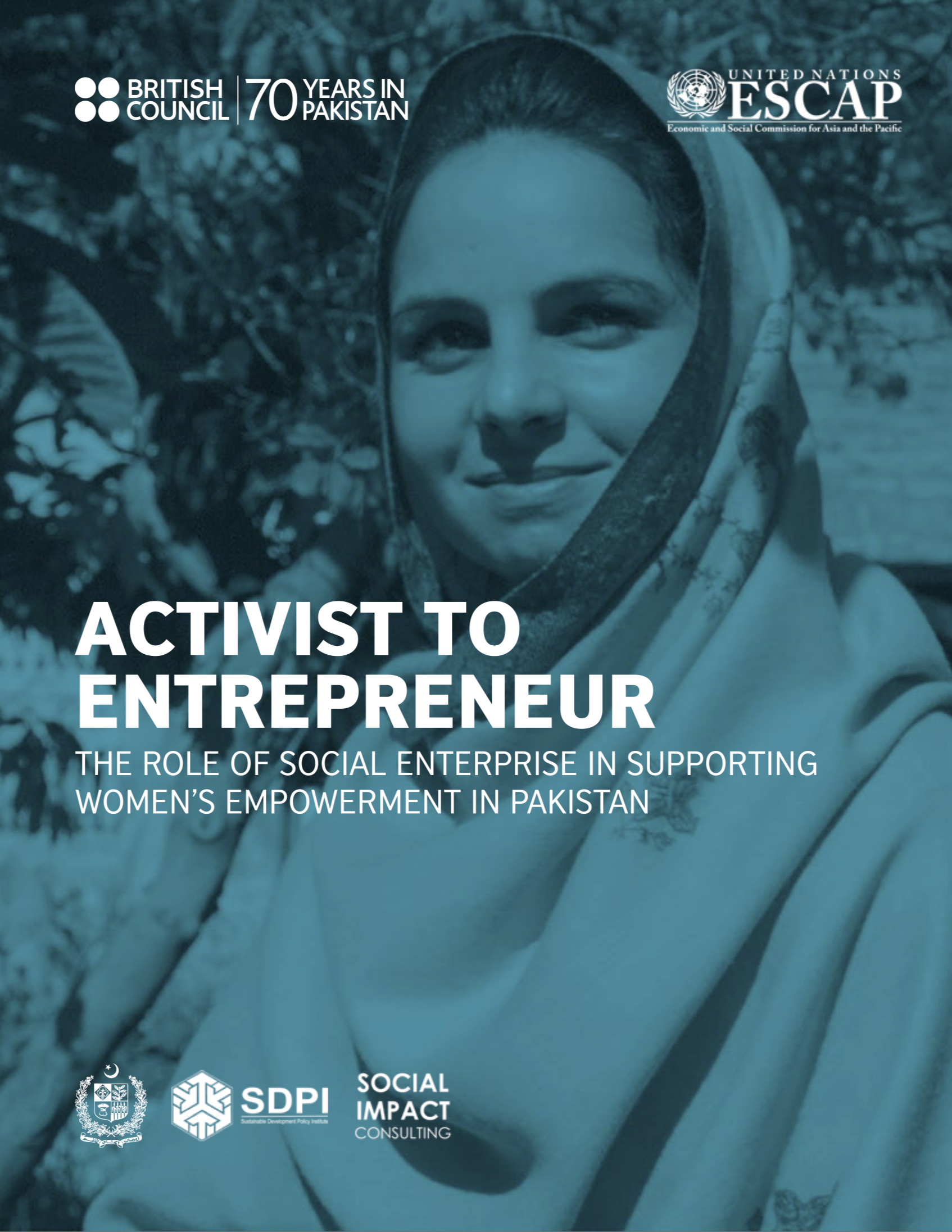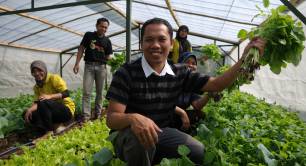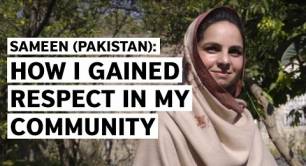UN leader: “Unleash the entrepreneurial spirit of women through social enterprise"
Today in Pakistan a report is published which highlights how social enterprise can advance women's rights. Dr Shamshad Akhtar, executive secretary of the United Nations Economic and Social Commission for Asia and the Pacific, says social enterprise provides a unique opportunity to dismantle some of the barriers women face.
Realising the ambitions of the 2030 Agenda for Sustainable Development hinges on placing women at the centre of our efforts. A growing body of evidence illustrates that advancing women’s economic empowerment has multiplier effects across the spectrum of development. Reducing gender gaps in health, education and labour markets have been shown to contribute to lower poverty, higher economic growth, greater productivity and more resilient communities. Studies have found that closing these gaps could result in GDP gains of up 48 per cent in South Asia and 30 per cent in East and South-East Asia (excluding China) by 2025. Available data also suggests that a 0.1 reduction in gender inequality as measured by the Gender Inequality Index is associated with almost 1 percentage point of higher economic growth.
However, across Asia and the Pacific, women still cannot fully exercise their rights to decent work and full and productive employment. Gender gaps in labour force participation are as high as 50 percentage points in South Asia and 23 percentage points in South-East Asia in 2016 . Women are also more likely to find themselves in vulnerable employment with low wages, no formal contracts or labour rights and minimal social protection.
Increasingly, women across Asia and the Pacific are playing prominent roles in harnessing the power of markets and business to tackle society’s greatest challenges
Unleashing the entrepreneurial spirit and leadership of women through social enterprises provides a unique opportunity to dismantle some of these barriers. Increasingly, women across Asia and the Pacific are playing prominent roles in harnessing the power of markets and business to tackle society’s greatest challenges. Social enterprises harness trade, investment and business activity towards social and environmental objectives, and are being recognised as critical drivers of innovation for sustainable development. Furthermore, by setting up and managing a business, women can achieve economic independence, overcome poverty through asset building and improve their well-being as well as that of their families and communities. For instance, research in three countries found that, compared with male business owners, women business owners hired 17 per cent more women employees.
A recent Thomson Reuters Foundation survey of the best countries for women to be a social entrepreneur showed that the Philippines ranks the highest in the world, taking into account their representation in leadership roles and the gender pay gap. Five other Asian economies also featured in the top 10 rankings — namely, Malaysia; China; Hong Kong, China; Indonesia and Thailand. Women interviewed across Asia also described a relatively fairer playing field and higher drive to put compassion over profit as the reason that women tend to thrive as social entrepreneurs.
A new report published by the British Council and UNESCAP, Activist to Entrepreneur: The role of social enterprise in supporting women’s empowerment in Pakistan, showcases key findings of the opportunities and challenges facing women social entrepreneurs in Pakistan. It found that there are comparatively more women leading social enterprises than traditional enterprises in Pakistan, with 20 per cent of social enterprises being led by women, as compared with 5 per cent of for-profit only enterprises. Specifically, social enterprises can be used to empower women through creating jobs, through offering opportunities for propelling women’s entrepreneurship and leadership, and through the delivery of affordable products and services to address constraints facing women and girls.
While the gender gap in social entrepreneurship is considerably smaller than in mainstream entrepreneurship, women entrepreneurs operating in this sphere still encounter gender-specific disadvantages. In Pakistan, women in the social enterprise sector face similar limitations, reflecting gender inequalities of the wider economy. For example, it was found that women face significant barriers in relation to access to loans and credit; skills development; discrimination; and balancing familial and societal commitments. Yet, female social entrepreneurs in Pakistan surveyed also confirmed an increased sense of financial independence and economic empowerment. 71 per cent reported increased confidence and 58 per cent reported their role had strengthened their status in their communities.
Female social entrepreneurs in Pakistan confirmed an increased sense of financial independence and economic empowerment
Our research confirms, through transformative measures, social enterprise can be used as a model for the empowerment of women in Pakistan and beyond. To do so, a gender-responsive entrepreneurial ecosystem needs to be created – an ecosystem that enables women entrepreneurs to access the resources and support needed to develop their businesses, scale up and make them sustainable. This must include improving access to finance, technology, innovation and good governance. To foster such an ecosystem, multi-sectoral collaboration is essential. Concerted efforts by policymakers, financial institutions, the private sector and women entrepreneurs’ networks are also required.
The positive impacts of social enterprises are manifold and, not least, as a catalyst for progress in advancing gender equality and implementing the 2030 Agenda. ESCAP stands ready to support countries in prioritising women’s empowerment and supporting social enterprise development towards building an inclusive, prosperous and sustainable Asia and the Pacific.
 Activist to Entrepreneur: The role of social enterprise in supporting women’s empowerment in Pakistan is available to download here.
Activist to Entrepreneur: The role of social enterprise in supporting women’s empowerment in Pakistan is available to download here.
Dr Shamshad Akhtar is an Under-Secretary-General of the United Nations (UN) and the executive secretary of the Economic and Social Commission for Asia and the Pacific (ESCAP). In February 2017, the British Council and ESCAP signed a collaborative agreement to promote the growth of social enterprise and impact investment across the Asia-Pacific region as a means of supporting progress on the Sustainable Development Goals (SDGs). The two organisations' collaboration on this report is an example of this work.
Header photo: Somo Samo village well in Pakistan by Caroline Suzman/World Bank, published from the World Bank Photo Collection under a creative commons licence.




